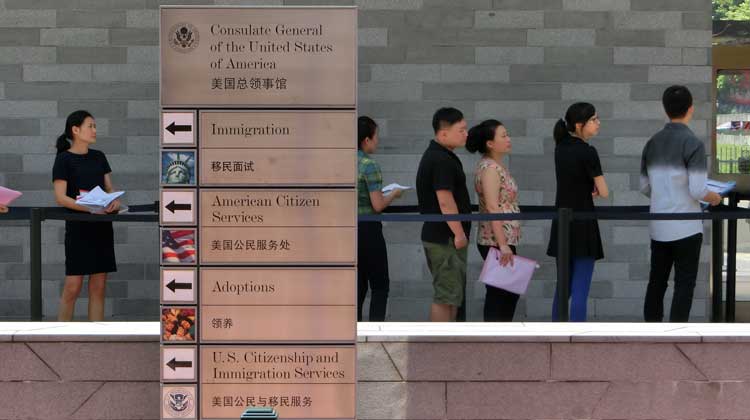
The Government Accountability Office (GAO) recommended several actions March 27 to improve performance and expansion planning for the Immigration and Customs Enforcement (ICE) Visa Security Program (VSP).
Established in 2003 and coordinated by ICE’s Homeland Security Investigations, VSP deploys law enforcement professionals to worldwide diplomatic locations as the frontline on visa security. VSP professionals investigate fraudulent visa applications, work with law enforcement, and provide training to State Department outposts around the world.
In the report, GAO provided four recommendations for ICE to improve and continue expanding the program. Among the recommendations are that the ICE director ensures training to outposts continues development and is properly implemented, and for ICE to develop “outcome-based performance measures.” (The report specified that as of 2017 “none of the VSP’s 19 established performance measures are outcome-based.”) Other recommendations are that VSP utilize Pre-adjudicated Threat Recognition and Intelligence Operations Team (PATRIOT) data when determining post expansion, and “incorporate remote models of VSP operations in the program’s site selection process,” the report stated.
“The implementation of PATRIOT in fiscal year 2014 enhanced the program by allowing ICE to automatically screen 100 percent of nonimmigrant visa applications submitted to VSP posts against U.S. holdings of derogatory information prior to the consular officers’ adjudication on the applications,” the report stated. “However, not all VSP posts have met ICE’s training requirements.”
It continued that threat training could help officers adjudicate visas, but it also said that ICE does not completely incorporate necessary data to best allocate resources.
GAO noted that it previously examined VSP in 2011, and ICE progress on program objectives was lacking because of lack of data on the program’s activities. At the time, GAO determined that consular officers didn’t receive proper training from VSP agents and made corrective recommendations.
“[Department of Homeland Security (DHS)] concurred with and took actions to address our recommendations regarding training for consular officers,” the report stated. “[H]owever, DHS did not concur with our recommendation that ICE collect comprehensive data on all performance measures and track the time VSP agents spent on visa security versus other activities.”
The report noted that DHS agreed with the report’s recommendations with a caveat.
“Regarding our recommendation that ICE develop and implement outcome-based performance measures to evaluate the effectiveness of the VSP, ICE stated that it did not agree with our assessment that none of VSP’s 19 established performance measures are outcome-based, and that the agency would continue to utilize some of the measures, such as applications screened, number of trainings conducted by VSP agents for consular officers, and number of investigations opened as important performance measures,” the report stated.
Read the entire report here.
© 2018 Homeland411
Click here to subscribe to our weekly newsletter.